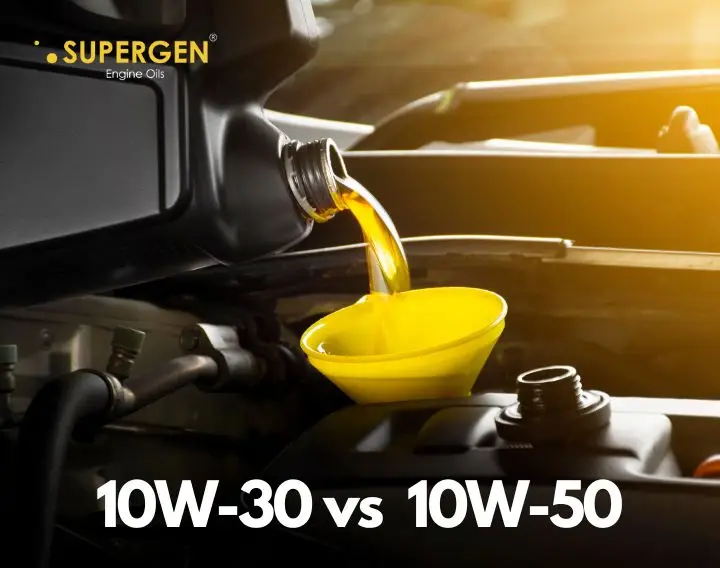Engine oils come in different grades that are determined on the basis of their viscosity. This is because different vehicles and engines have different requirements from their engine oils, which means that the recommended grade for each vehicle can vary. Engine oils do not have a permanent viscosity. The thickness of an oil varies according to the temperature. Oils tend to be thicker in the cold, while they thin down in the heat. This is why most oil grades are expressed in the form of a range, with two numbers expressing viscosity levels at high and low temperatures. Hence, a grade like 10W-30 shows that the viscosity level at low temperatures is 10 while that at higher temperatures is 30. Similarly, in 10W-50, the thickness at low temperature is also 10, but the thickness at high temperature is 50. Both these oils have the same viscosity at low temperatures, but at higher temperatures, the viscosity differs. Since 50 is the higher number, that indicates a higher level of thickness. Thus, at high temperatures, 10W-50 is thicker than 10W-30.
Is 20W-50 thicker than 10W-30?
As mentioned earlier engine oil grades are expressed as a range, since oil viscosity depends on temperature. The first number in an oil grade represents the viscosity level of the oil at lower temperatures, as indicated by the W (Winter), that is written after it. The second number represents the viscosity of an oil at higher temperatures. Thus, the thicker the oil, the higher the viscosity level. This is why, in the case of 20W-50 and 10W-30 engine oil grades, the former would be thicker than the latter. 20W-50 is therefore more likely to be used in very hot climates, as it would offer more protection, being the thicker oil.
ICan I use thicker engine oil than recommended?
Every vehicle comes with an owner’s manual that contains the recommended engine oil grade and type that works best for that particular model and design. However, at times, you might not be able to find or use the exact same grade. In such cases, one wonders whether using a thicker engine oil is a good idea. Thick engine oils have a lot of benefits. Firstly, if you are someone who uses their vehicle in city traffic, for long periods of time, then thicker oil might help you. This is because city traffic causes the engine to heat up quite a lot due to the constant stop and go motion. A thicker oil will continue to provide good protection even when the engine is very hot. Similarly, if you live in an area that experiences heat waves or very high temperatures, thicker oil would be a good idea for the same reason. Furthermore, if your car or engine is quite old, then a thick oil would offer more protection from wear and tear and also prevent leaks, which would mean that the engine lasts for longer despite its age. Thus, using a thicker oil than recommended can help in any one of the circumstances mentioned here, as long as you don’t deviate from the recommendation too much.
Can I use thinner oil than recommended?
Just like it can be a good idea to use a thicker oil than recommended in certain cases, there are some circumstances where using a thinner oil than recommended can work too. If you live in extremely cold climates, where temperatures drop to zero or sub zero temperatures regularly, then it can be a good idea to use a thinner oil, since that will prevent it from becoming too thick even at extremely low temperatures. Similarly, if you own a high-powered vehicle and want to keep an eye on your mileage and not overload your engine, then you can use a thinner engine oil, since it will circulate faster and be more quick in working effectively. Thus, in such circumstances, it can be safe to use a thinner oil as long as you don’t deviate too much from the recommendation.










